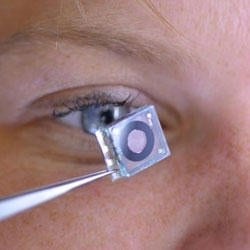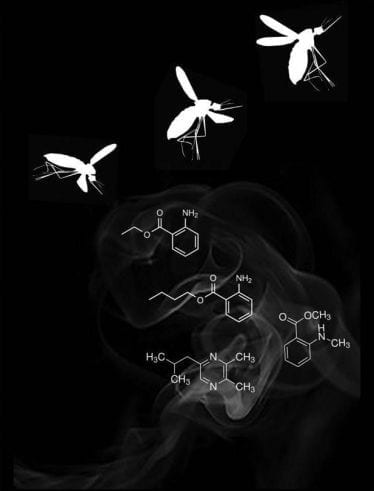
The experimental cancer drug ibrutinib has wowed in clinical trials, beating deadly blood cancers without the painful side effects of currently approved therapies.
And it has raced through development and regulatory hurdles, in part thanks to a US program to accelerate the development of particularly promising drugs, says its developer Pharmacyclics, based in Sunnyvale, California.
The US Food and Drug Administration (FDA) launched the ‘breakthrough therapy’ designation in 2012, and the label has been eagerly embraced by the pharmaceutical industry. Recent months have seen a steady stream of drugs being submitted for review. For some firms — particularly young ones — the designation can bring an extra boost of cash by raising investor confidence.
But for all the fanfare, the industry is also watching closely to see exactly what benefits can be gained by having a drug reviewed through this route. “It’s like winning a beauty pageant,” says Timothy Coté, a former director of the FDA’s Office of Orphan Products Development who now runs a consultancy called Coté Orphan Consulting in Silver Spring, Maryland. “It doesn’t have specific tangible outcomes, but it does appear to have enlivened the community.”
The breakthrough therapy designation was created by the FDA Safety and Innovation Act, a law that requires the agency to fast-track promising drugs for serious or life-threatening conditions. The FDA aims to do this by meeting early and often with developers, as well as working with them to design clinical trials that deliver the needed data quickly and efficiently.
The industry leapt on the opportunity, so far submitting 99 applications for the designation. But the flurry of applications may partly be a product of confusion, says Coté: the FDA has avoided laying out detailed descriptions of what constitutes a breakthrough, and some companies are unsure of the criteria. “Most biotech chief executives with something in the clinic think that they’re already there,” Coté says — but 47 of the applications submitted in the past year have been denied. In most cases the denials are due to insufficient clinical data, the FDA says.
The Latest Bing News on:
Fast-Track Drugs
- Compass gets US FDA fast track status for its bispecific DLL4/VEGF-A antibody, CTX-009 in combo with paclitaxel to treat biliary tract cancerson April 26, 2024 at 11:31 pm
Compass gets US FDA fast track status for its bispecific DLL4/VEGF-A antibody, CTX-009 in combo with paclitaxel to treat biliary tract cancers: Boston Saturday, April 27, 2024, 12 ...
- Buy Rating Justified: Biogen’s Promising Drug Launches and Strategic Growth Initiativeson April 25, 2024 at 11:22 pm
Analyst Salim Syed from Mizuho Securities assigned a Buy rating on Biogen (BIIB – Research Report) and keeping the price target at ...
- Tennessee Gov. Bill Lee Quietly Kills Clemency Initiative for Drug-Free School Zone Offenderson April 24, 2024 at 4:16 pm
Wayne Potee waited for three years after filing a clemency petition under a "fast-track" program. Earlier this year, Gov. Lee quietly killed the program.
- European agency grants orphan status to Edgewise drugon April 24, 2024 at 11:23 am
The European Medicines Agency has granted orphan drug designations to one of Edgewise Therapeutics muscular dystrophy drugs.
- Meet Eli Lilly's Secret Weapon in the Billion-Dollar Weight Loss Drug Marketon April 24, 2024 at 3:40 am
Lilly recently announced news that could solve a big problem.
- 3 Speculative Weight Loss Drug Stocks to Bet On for Big Gainson April 24, 2024 at 3:33 am
InvestorPlace - Stock Market News, Stock Advice & Trading Tips Investors continue to search for the next big weight loss drug stocks ...
- Every Reference to Drugs and Alcohol on Taylor Swift’s ‘The Tortured Poets Department’on April 19, 2024 at 11:36 am
Taylor Swift showed off her mature songwriting evolution by making several nods to drugs and alcohol on 'The Tortured Poets Department' ...
- Weight-loss drug linked to sleep apnea reduction: Researchon April 17, 2024 at 9:44 am
The weight-loss drug Zepbound was linked to a reduction in obstructive sleep apnea (OSA), according to new research. Pharmaceutical manufacturer Eli Lilly on Wednesday said injections of its ...
- Eli Lilly’s weight-loss drug Zepbound might help cure your sleep apneaon April 17, 2024 at 8:05 am
Eli Lilly and Company announced promising results for its weight loss drug Zepbound, indicating its potential as a treatment for sleep apnea.
- These Drugs Don’t Work. Americans Still Spent Billions on Themon April 17, 2024 at 3:00 am
Hi, It’s Bob in balmy springtime New York. I was surprised when I realized just how much Americans are spending on drugs that don’t work or had most of their uses withdrawn. But ...
The Latest Google Headlines on:
Fast-Track Drugs
[google_news title=”” keyword=”Fast-Track Drugs” num_posts=”10″ blurb_length=”0″ show_thumb=”left”]
The Latest Bing News on:
Breakthrough therapy
- MindMed: Breakthrough Status From The FDA For LSD Therapyon April 26, 2024 at 2:33 am
MindMed's LSD tartrate receives breakthrough therapy designation from the FDA for the treatment of generalized anxiety disorder. See why MNMD stock is a Sell.
- Manual nerve therapy breakthrough promises relief from disorderson April 23, 2024 at 10:40 pm
In a significant stride forward for the treatment of chronic disorders, groundbreaking manual nerve therapy has emerged.
- Ziftomenib Granted Breakthrough Therapy Designation by FDA in R/R AMLon April 23, 2024 at 8:00 am
The investigational drug ziftomenib is currently being evaluated for patients with relapsed/refractory NPM1-mutant acute myeloid leukemia.
- ImmunityBio stock jumps as FDA clears bladder cancer therapyon April 23, 2024 at 2:57 am
Shares of ImmunityBio (IBRX) surged 33% premarket after FDA clearance of its combination therapy for bladder cancer treatment.
- Kura Oncology Gets FDA Breakthrough Therapy Designation For Ziftomenib In R/R NPM1-Mutant AMLon April 22, 2024 at 3:12 pm
(RTTNews) - Kura Oncology, Inc. (KURA) on Monday announced that it has been granted FDA Breakthrough Therapy Designation for its investigational drug, Ziftomenib, aimed at treating patients with ...
- Kura Oncology Receives Breakthrough Therapy Designation for Ziftomenib in NPM1-Mutant AMLon April 22, 2024 at 6:30 am
Ziftomenib is the first investigational treatment to be granted Breakthrough Therapy Designation for NPM1-mutant AML –– Registration-directed ...
- Kura Oncology Gets Breakthrough Designation For Leukemia Therapyon April 22, 2024 at 5:25 am
Kura Oncology said Monday it received a breakthrough therapy designation from regulators for ziftomenib, its potential treatment for a form of leukemia. The San Diego-based biopharmaceutical ...
- Kura Oncology Gets Breakthrough Designation For Leukemia Therapyon April 22, 2024 at 5:10 am
By Ben Glickman Kura Oncology said Monday it received a breakthrough therapy designation from regulators for ziftomenib, its potential treatment for a ...
- Cancer Breakthrough Found to Boost Immune Cells Without Harmful Side-Effects By Directing Protein Cytokineson April 21, 2024 at 7:00 am
A new way to safely boost immune cells to fight cancer—avoiding harmful side-effects such as hair loss—has been developed.
- Push to legalize psychedelic-assisted therapy treatment continueson April 17, 2024 at 4:30 pm
The push to legalize psychedelic-assisted therapy treatments continues, as the FDA recently said some psychedelic drugs show promise.
The Latest Google Headlines on:
Breakthrough therapy
[google_news title=”” keyword=”breakthrough therapy” num_posts=”10″ blurb_length=”0″ show_thumb=”left”]









